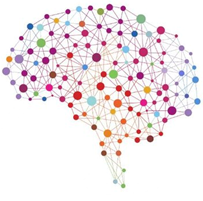Talk title: Looking for emotions in the absence of sight: from the brain to the body
Abstract
Understanding and navigating the complexities of human emotions is fundamental to successful social interactions and daily life functioning. Over the years, the significance of these emotional processes has prompted research endeavors aimed at establishing robust models connecting behavioral responses to emotional experiences. However, the neural mechanisms underlying affective processing are yet not fully understood, with evidence supporting either local or distributed processing. A biologically favorable alternative lies in the concept of gradients, which postulates the isomorphism between functional representations of stimulus features and cortical distance. Indeed, this fundamental mechanism underlies primary sensory processing in the brain. Within this framework, I will present results coming from a study involving fMRI activity evoked by an emotionally charged movie and continuous ratings of the perceived emotion intensity, which revealed the topographic organization of affective states. Moreover, I will discuss findings demonstrating that brain connectivity dynamics track changes in subjective reports of affective experience. Notwithstanding this parallel between perception and emotion in the brain organization, a lingering question pertains to the potential impact of sensory modality absence on affect representation. As a matter of fact, affective signals are largely conveyed through nonverbal communication, and rely heavily on visual cues, as for instance the redness on the cheeks when feeling embarrassed. Therefore, a question naturally arises: how emotions are experienced/perceived in absence of vision? Specifically, do blind individuals retain the same mechanisms of emotional coding in the brain? Is their representation of affective states in the body different from a sighted subject? I will present findings from a naturalistic investigation employing a full-length movie within the fMRI scanner and an innovative haptic task designed ad-hoc. These results shed light on the intricate questions surrounding the experience and perception of emotions in the absence of vision, offering new insights into the neural substrates of affective processing and how they may differ in individuals with visual impairments

